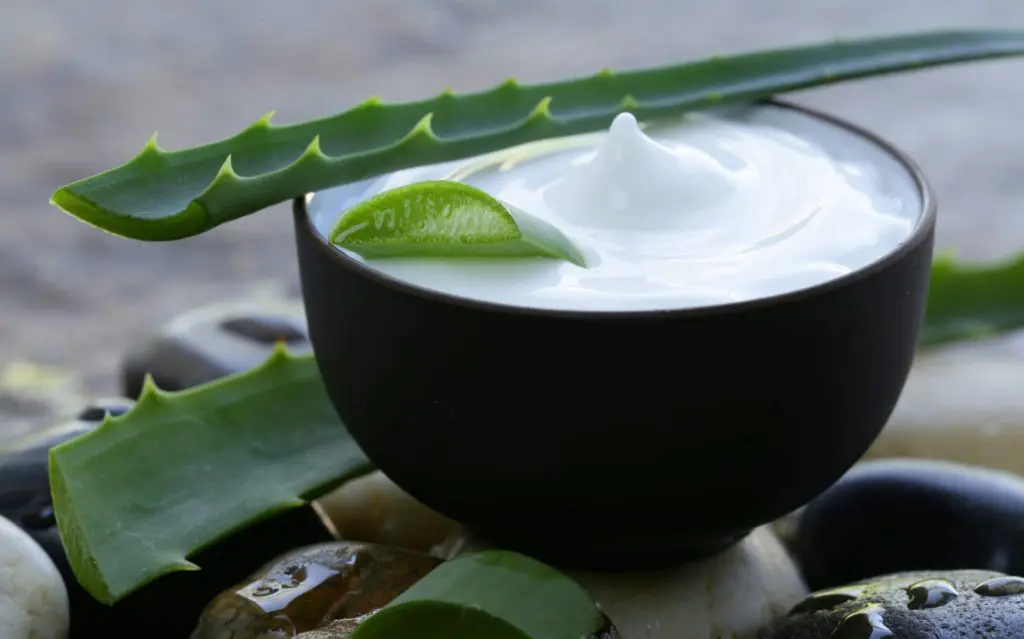Vitamins are important ingredients for your skin and are used in all types of cosmetic product. Vitamins are a great addition to your natural or organic products, and this article will explore the role and benefits of the most popular vitamins for skincare.
Benefits to the skin are many including suppression of pigmentation, stimulation of collagen synthesis, anti-oxidant and anti-inflammatory effects.
Benefits of vitamins for the skin
Here is a summary of some of the main benefits of vitamins for skincare.
Please note: although some vitamins have properties that may protect against damage from the sun, we don’t advocate creating your own sunscreen and we always recommend wearing a high factor SPF.
Vitamin A
- Normalizes keratinization which helps reduce roughness and wrinkles.
- Regulates sebum production.
- Reverses and treats photo-damage.
Vitamin B3
- Improves skin texture and the appearance of hyperpigmented spots.
- Stimulates collagen synthesis and production of ceramide.
- Reduces the rate of sebum excretion.
Pro vitamin B5 (D-Panthenol)
- Stimulates epithelization.
- Mitigates itching.
- Has an anti-inflammatory effect.
- Improves the hydration of the skin, helps maintain skin softness and elasticity.
Vitamin C
- Antioxidant.
- Regulate collagen synthesis.
- Formation of stratum-corneum barrier lipids.
- Regenerates vitamin E.
- Provides photo protection (in combination with vitamin E).
Vitamin E
- Antioxidant.
- Protects against oxidative damage.
- Provides photo protection (in combination with vitamin C).
Co-Enzyme Q10
- Antioxidant.
- Regenerates vitamin E.
- Protects against photo-aging.

How to use vitamins in your skincare products
Please note: these are guidelines and suggestions only and you should always check with the manufacturer or supplier of an ingredient for any specific usage rates or directions for use.
Vitamin A
Due to benefits in the treatment of photo-aging and in normalization of keratinization, this vitamin is a good choice for your skincare products for people with mature skin. You may like to incorporate this vitamin in your night cream; it’s not usually recommended for day time use as even on dull cloudy days as it can make your skin sun sensitive.
It comes in different forms or different derivatives, all together called retinoids. Most commonly used are retinol and retinyl palmitate. Both are fat-soluble vitamins, usually incorporated in a cool phase. Typical amounts recommended by suppliers are 0.3-1.3 %.
Vitamin B3
Vitamin B3 has multiple benefits, making it the ideal ingredient for daily skincare formulations.
You can use in products for dry skin (increases ceramide), sensitive skin (inflammatory properties beneficial in cases of acne, for example) or mature skin (to reduce the appearance of wrinkles).
Add 1-6% in the water phase or in a finished product.
Pro Vitamin B5 (D-Panthenol)
Useful for dry, damaged, chapped, broken and inflamed or irritated skin as well as mature/aging skin.
Use 1-5% in your products in cool-down phase (water soluble).
Vitamin C
You can use this vitamin in your rejuvenating creams due to its antioxidant effect and anti-inflammatory properties; hence it’s good for acneous skins.
It’s best to use the stable forms of this Vitamin as L- Ascorbic acid becomes unstable once in contact with oxygen and water. Sodium Ascorbyl Phosphate and Magnesium Ascorbyl Phosphate are much more stable and also water soluble. For stable oil soluble derivatives you can try Ascorbyl Palmitate and Ascorbyl Tetraisopalmitate.
Vitamin E
Vitamin E is known for its antioxidant properties so you can add this in all your daily skincare products. In oil-based products, this vitamin helps slow down the oxidation process. Vitamin E enhances the benefits of Vitamin C, too.
Usually used at 0.05-3% in a cool phase.
Co-enzyme Q10
CO-Q10 is one of the most used cosmetic ingredients for skincare for its powerful anti-aging properties, and capacity to reduce UV damage. Increases cell energy.
Usually added at the end of the formulating process, with typical doses of 1-3%.
Now, it’s your turn to formulate amazing products with vitamins!
We teach you how to formulate with vitamins and a wide range of other high-performance active ingredients in our Advanced Certificate in High-Performance Serum Formulation.
Quick guide to formulating with Vitamin C
Ready to start supercharging your skincare formulations with high-performance ingredients?
Sign up to our weekly newsletter and receive your free guide and Vitamin C antioxidant serum formula today. – an exclusive gift from us!

In our quick guide to formulating with Vitamin C you’ll learn:
- What is Vitamin C?
- What are the benefits of Vitamin C?
- What type of cosmetic is it suitable for
- Stable forms of Vitamin C and how to use them.
Plus we’ll share with you a Vitamin C antioxidant serum formula you can make yourself!
You’ll also discover the amazing benefits Vitamin C offers for the skin.
Quick guide to formulating with Vitamin C
Ready to start supercharging your skincare formulations with high-performance ingredients?
Sign up to our weekly newsletter and receive your free guide and Vitamin C antioxidant serum formula today. – an exclusive gift from us!

In our quick guide to formulating with Vitamin C you’ll learn:
- What is Vitamin C?
- What are the benefits of Vitamin C?
- What type of cosmetic is it suitable for
- Stable forms of Vitamin C and how to use them.
Plus we’ll share with you a Vitamin C antioxidant serum formula you can make yourself!
You’ll also discover the amazing benefits Vitamin C offers for the skin.
References:
Role of Vitamins in Skin Care, Stanley S. Shapiro and Claude Saliou, Nutrition, Vol. 17, 2001.
www.makingcosmetics.com/articles/07-essential-role-vitamins-in-cosmetics.pdf
Coenzyme Q10 Ameliorates Ultraviolet B Irradiation Induced Cell Death Through Inhibition of Mitochondrial Intrinsic Cell Death Pathway, Li Jing, Santosh Kumari, Natalia Mendelev and P. Andy Li.




